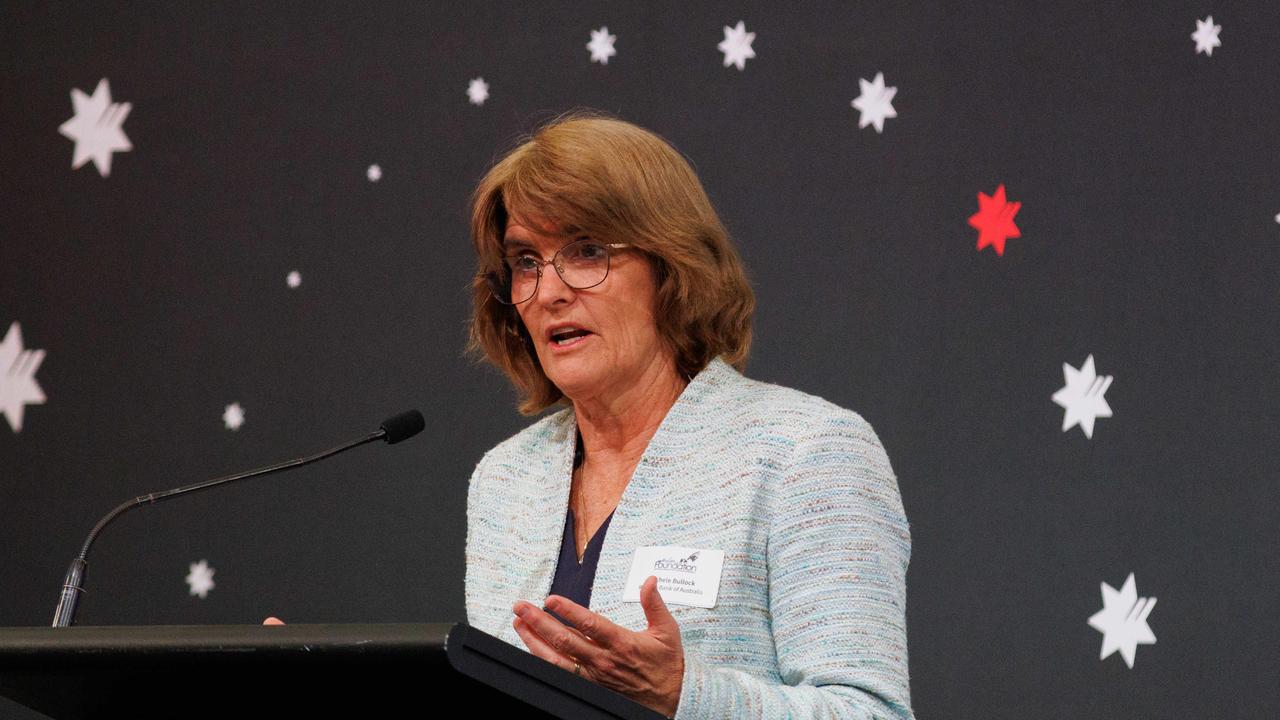RBA governor Michele Bullock tells economics committee inflation challenge ‘not over’
The Reserve Bank governor says interest rates may need to go even higher if one thing doesn’t improve – as she offers a glimmer of hope for early reprieve.
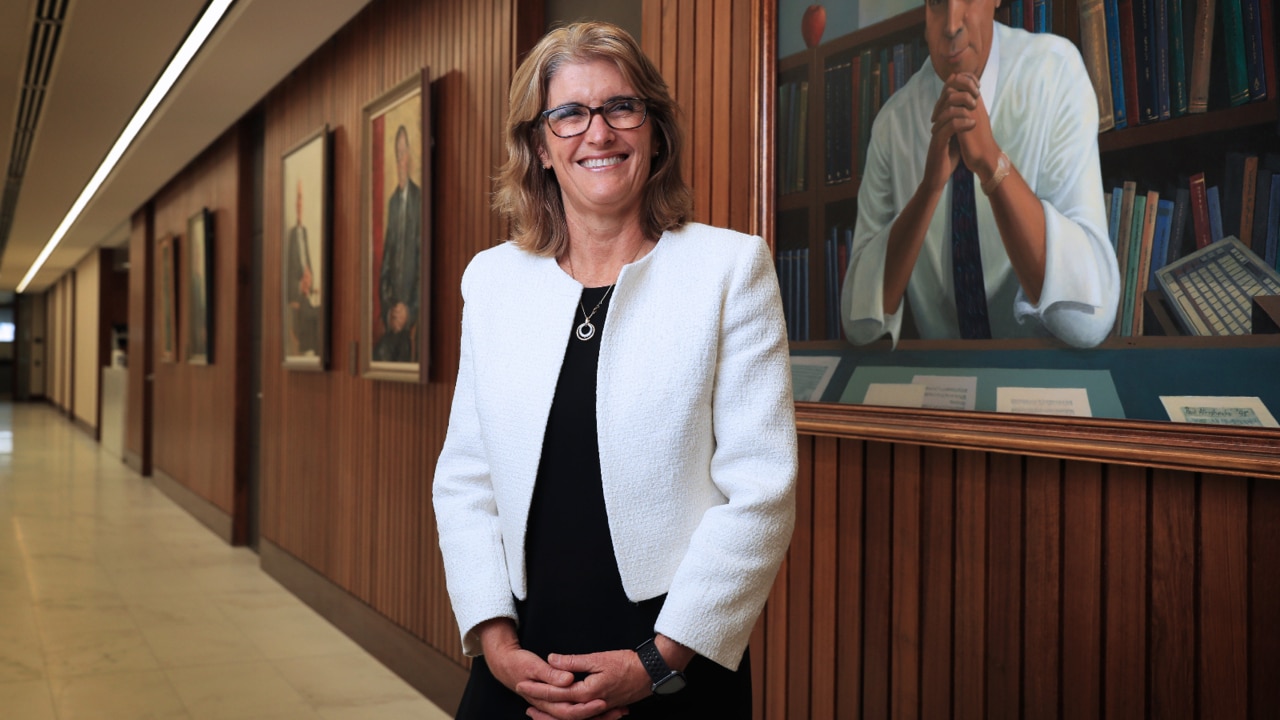
Interest Rates
Don't miss out on the headlines from Interest Rates. Followed categories will be added to My News.
The Reserve Bank is prepared to move with the economic conditions as they consider whether to keep rates steady, slash them or hike them even further.
Appearing before a parliamentary economics committee in Canberra on Friday, Reserve Bank governor Michele Bullock warned that the cash rate – which the central bank kept steady at 4.35 per cent at their first meeting of the year this week – may need to be pushed higher if Australia’s lacklustre post-pandemic productivity performance doesn’t improve.
“So if productivity isn’t rising, if it’s falling, then that doesn’t bode well for rises in wages. What does it imply for monetary policy? It just means that we have to make sure that we bring demand back down so that businesses, when they’re facing these costs increases, they’re thinking twice about whether or not (they) can pass these cost increases on,” she said.
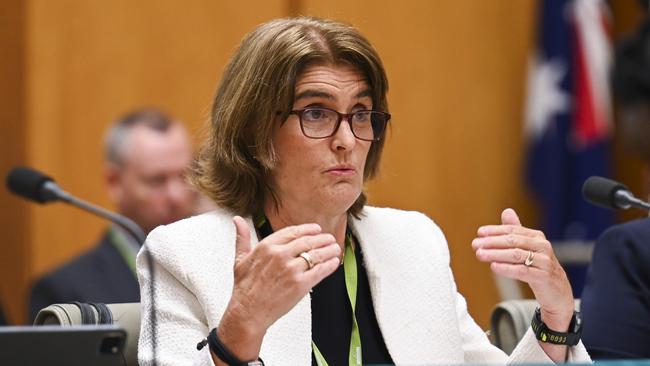
On the other side of the coin, she told the committee the bank did not believe it had to wait until inflation had to return to the target of 2.5 per cent before it started slashing rates, if the economic conditions were otherwise favourable.
“But we do need to be very confident that we’re going to get there as we start to remove the restrictive nature of policy,” she said.
Inflation was down to 4.1 per cent in the December quarter, and Ms Bullock said although the situation had improved, the rate was still not “good enough”.
Number that ‘isn’t good enough’ for RBA
Ms Bullock said an inflation rate with a four in front of it “isn’t good enough”, the Reserve Bank governor says as she defended the possibility of more rate rises this year.
She conceded that while there were “encouraging signs” that inflation pressures were easing, high inflation was “still a challenge”, as were ongoing cost-of-living pressures, but warned that pre-emptively lowering interest rates could have drastic ramifications.
“The board understands that rising interest rates have put additional pressure on households that have mortgages,” she said.
“But the alternative of lower interest rates and high inflation for a prolonged period would be even worse for these households as well as all the households without mortgages.”
She said the board had neither ruled out, nor ruled in, another increase to the cash rate.
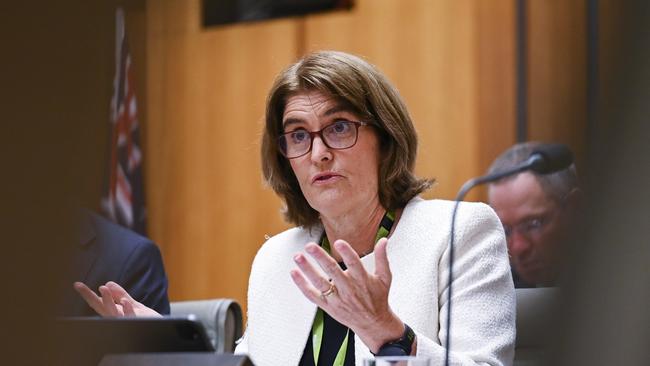
She said while inflation seemed to be moderating at a faster pace than expected, the challenge “isn’t over”, and warned the bank would do “what we need to do” because the alternative is “bad for everyone”.
Borrowing a phrase from her predecessor, Phil Lowe, Ms Bullock said the central bank needed to take the “narrow path” – referring to the policy of achieving the maximum level of employment consistent with low and stable inflation.
“We’re trying to bring inflation back to target without slowing the economy more than necessary on demand, or risking high inflation for longer,” she said.
Ms Bullock emphasised the RBA was aiming for the middle of the 2 to 3 per cent inflation target, in line with the new statement on the conduct of monetary policy, agreed with Treasurer Jim Chalmers.
She said there was still “some way to go” before meeting the target, but the central bank expects to reach the midpoint by mid-2026.
“Inflation will still have been outside the target range for four years. The longer inflation remains high and outside the target range, the greater is the risk that inflation expectations of households and businesses will adjust higher,” Ms Bullock said.
“If that happens, then the risks of inflation becoming entrenched at a higher level will rise.”
How rate relief could come sooner
Crucially, Ms Bullock said it was not essential for inflation to slow to 2.5 per cent before the RBA moved to lower the cash rate, if the economy was in good shape.
”Do we have to be absolutely in the inflation band before we start thinking about if we think monetary policy is restrictive now, which we think it is?” she says.
“And do we have to be in the band at 2.5 per cent before we think about doing that?
“No, I don’t believe we do. But we do need to be very confident that we’re going to get there as we start to remove the restrictive nature of policy.”
“It’s no good just to go in and then pop out again.”
She said wages growth was expected to slow in some sectors, even though weak productivity has contributed to an increase in labour costs.
She said the strength of workers’ pay rises in the future would depend on the economy becoming more efficient and competitive.
“If productivity doesn’t rise, then what’s going to happen is that the rate of increase in wages is going to have to slow as well,” Ms Bullock said.
“If there’s more productivity, then you can pay your workers more because they’re worth more, they’re producing more.
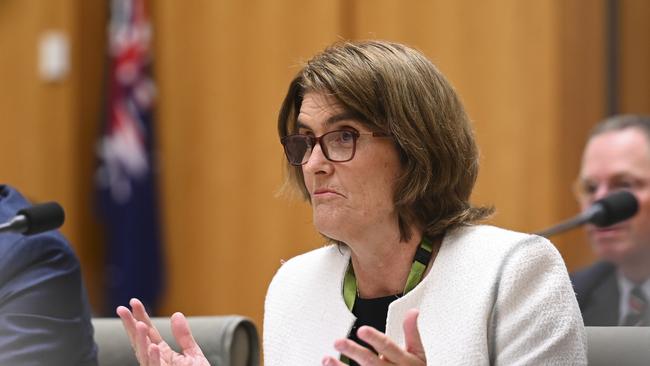
‘Bank of mum and dad’ adding to demand
The Reserve Bank does not keep tabs on how many young Australians are using family gifts, bequests or “the bank of mum and dad” to purchase homes despite the growing presence of informal loans in the property market.
Ms Bullock said such loans didn’t “play into” the central bank’s thinking about financial conditions.
She conceded that such loans were having an impact on demand but said there were bigger issues at play.
“To the extent that the bank of mum and dad is bringing forward wealth and providing it to another generation and helping them to purchase houses, yes, it is adding to demand,” she said.
“But I don’t think that the first order effect here is the bank of mum and dad. I think the first order effect here is about the supply of well located land and housing versus demand.”
Stage 3 rejig will have ‘no impact’
Ms Bullock says the government’s amendments to stage 3 tax cuts will have “no impact” on the central bank’s inflation forecasts.
Under changes to the Morrison-era legislated tax cuts that passed the House this week, the government will redistribute tax cuts so that every taxpayer will receive a tax cut.
Incomes between $18,200 and $45,000 will now be taxed at 16 per cent, down from 19 per cent. The 30 per cent tax rate will apply on incomes between $45,000 and $135,000, and then a 37 per cent rate – which was abolished by the original stage 3 – will apply between $135,000 and $190,000. Above that, the 45 per cent rate will apply.
“They are staying within the same fiscal envelope, it’s just a redistribution,” Ms Bullock said.
“So it will have no material impact at all on inflation or just on moving towards the (target) band.”
Ms Bullock confirmed she had spoken to Treasury secretary Steven Kennedy “a few days” before he took his proposal to amend stage 3 tax cuts to offer cost-of-living relief to the cabinet.
“We confirmed … it wouldn’t have implications for our future (inflation) forecasts,” she said.
Ms Bullock said she “couldn’t recall” if she’d had a conversation with Mr Chalmers about the changes before Christmas.
RBA ‘closely’ watching China
Ms Bullock said the global economy had fared better over the last year than had been originally expected, but warned China remained a risk.
“The US in particular has turned out to be much more resilient than I think many people were expecting,” she said.
“I think at one point there was a discussion of hard landing, then it moved to soft landing, and then no landing at all, and it’s continuing to demonstrate great resilience.
“It’s fair to say though, that we are observing global growth slowing … Growth in China (especially) has been quite sluggish, and that’s something for us to watch.”

The collapse of a major Chinese property developer has fuelled global concerns about domino effects
Ms Bullock said if there was an impact on Australia’s commodity prices or exports to China, that could have serious implications for the domestic economy.
“I think the way I would describe it is that we are watching what’s going on overseas closely,” she said.
Public invited to help redesign $5 note
The Reserve Bank will be taking public feedback on redesigning the $5 note, in a bid to “honour and celebrate the culture and history of First Nations peoples”.
Queen Elizabeth II has featured on the $5 note since 1992, but after her death the central bank revealed it would replace the motif of the monarch with a design honouring Australia’s Indigenous heritage, in place of King Charles.
“As a first step in determining the design we will be asking members of the public over the course of March and April to share with us what they think should be on our $5 banknote,” Ms Bullock said.
“In recent weeks, we’ve also begun visiting First Nations community organisations in key regional and remote locations across Australia and the Torres Strait, and we’re doing that to engage with local communities about the theme nomination process.
Originally published as RBA governor Michele Bullock tells economics committee inflation challenge ‘not over’



